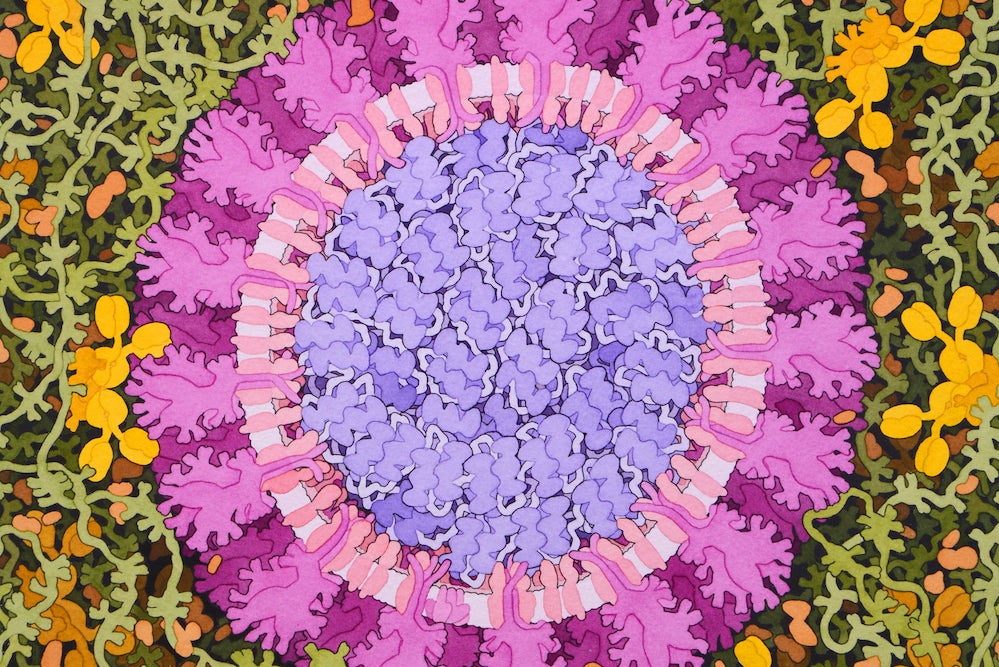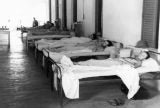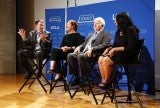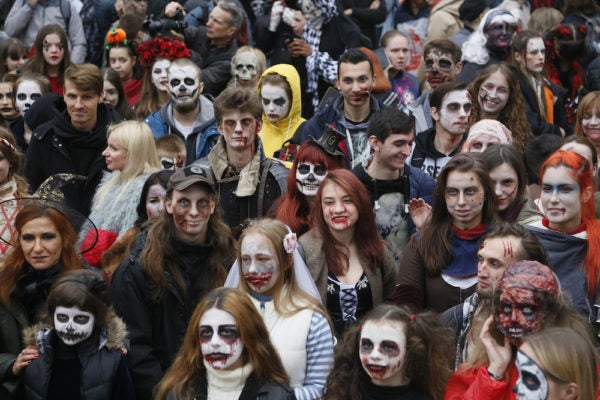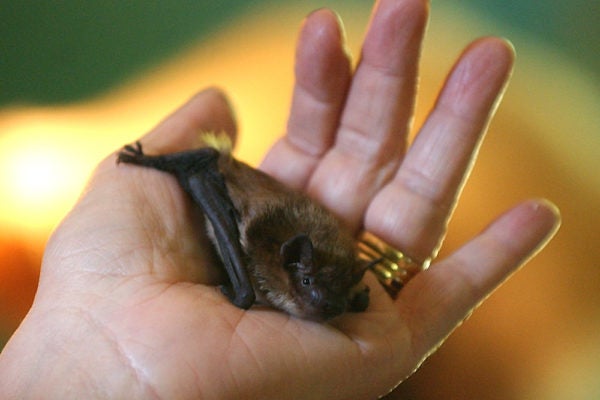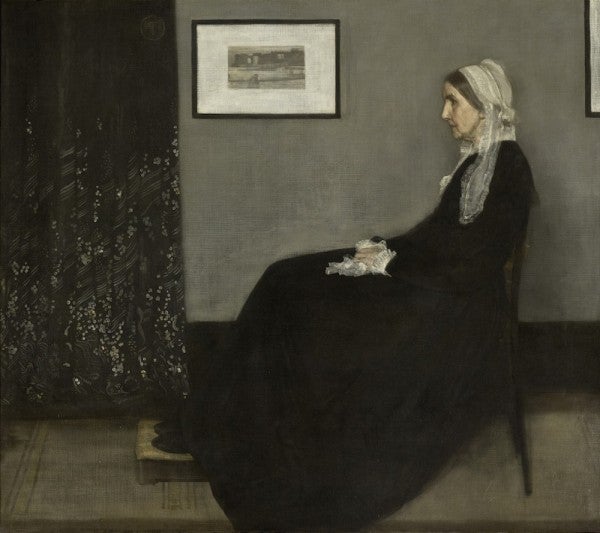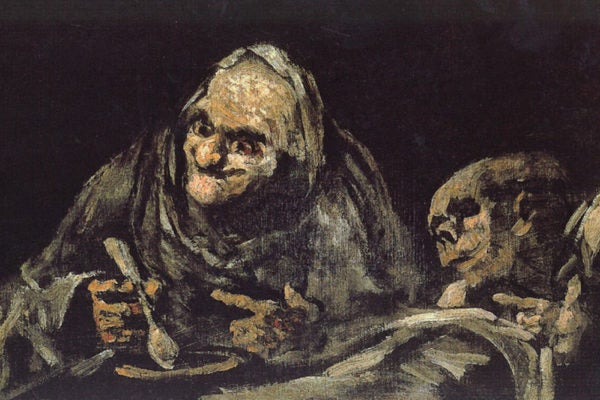An Intimate Portrait of a Coronavirus
Biologist David Goodsell Uses Watercolors to Explore Viruses and Cells Molecule by Molecule
Humans have probably always known about what viruses can do: throughout the ages, people have endured the familiar sniffles of a cold, the tell-tale rashes of measles, the occasional devastation of brand-new illnesses like today’s COVID-19.
But scientists didn’t have a hint of the true nature of viruses until 1892, when a Russian botanist realized tobacco plants were getting sick because of an unknown, invisible, and incredibly tiny pathogen—something far smaller, even, than bacteria.
Even today, with advanced microscopes and imaging technologies at researchers’ fingertips, it remains nearly impossible to …




